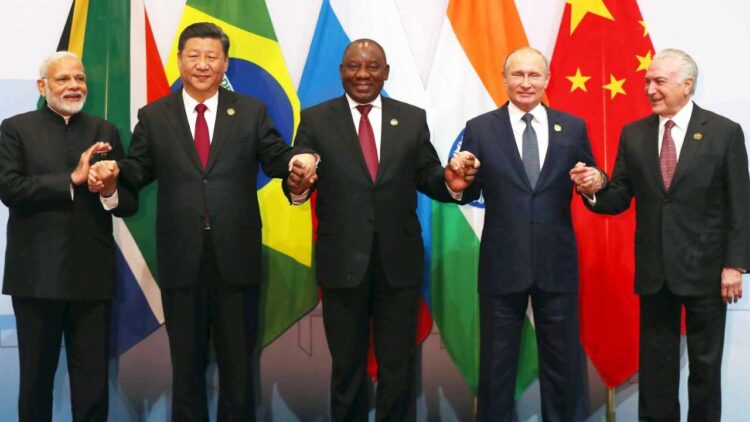

In a strategic move to overhaul what they view as an outdated world order, the BRICS group of developing nations has welcomed six new members: Saudi Arabia, Iran, Ethiopia, Egypt, Argentina, and the United Arab Emirates. However, the exclusion of Nigeria, Africa’s leading economy, has drawn attention.
While Nigeria hasn’t explicitly expressed its interest in BRICS membership, the potential advantages for the country are evident. Joining this coalition of nations committed to rapid development could greatly benefit Nigeria and enhance its stature on the global stage.
This expansion not only bolsters the economic strength of BRICS, currently comprised of China, Brazil, Russia, India, and South Africa, but also advances its goal to champion the interests of the Global South. While the door remains open for further enlargement, tensions could persist between members seeking to counterbalance the West, notably China and Russia, and those maintaining strong ties with the United States and Europe.
Formal induction of the six new members is scheduled for January 1, 2024, as announced by South African President Cyril Ramaphosa during a leaders’ summit in Johannesburg. The inclusion of influential oil-rich nations Saudi Arabia and UAE underscores their efforts to move away from the United States’ sphere of influence and establish themselves as significant global players.
President Ramaphosa emphasized the pursuit of a fair, just, inclusive, and prosperous world through this expansion, marking a new chapter for BRICS. The selected countries align with the preferences of existing BRICS members and reflect the individual aspirations of each nation.
The motivations behind the choice of new members are diverse. Brazil’s President Luiz Inacio Lula da Silva advocated for Argentina’s inclusion due to their close proximity and ties. Egypt’s commercial connections with Russia and India played a role in its selection. Russia and Iran’s shared opposition to sanctions and diplomatic isolation contributed to their admission.
Russian President Vladimir Putin stated that BRICS is not in competition with any specific entity but acknowledged the emergence of a new world order with both supporters and opponents. Iran’s President Ebrahim Raisi interpreted BRICS’ expansion as a sign of the decline of unilateral approaches.
The inclusion of Ethiopia, with its proximity to China, and the entry of Egypt reflect South Africa’s aspirations to amplify Africa’s influence on the global stage.
The expansion announcement garnered the attention of United Nations Secretary-General Antonio Guterres, who emphasized the need for reform in global institutions to reflect contemporary power dynamics.
Despite comprising a significant portion of the global population and GDP, BRICS has encountered challenges due to internal divisions and differing foreign policy goals. The debate over enlargement sparked discussions at the South African summit, with varying opinions among leaders about the extent and speed of expansion.
Late-night deliberations determined the entry criteria and the choice of nations to invite. China and Russia have consistently supported BRICS’ expansion to challenge Western dominance, while Brazil and India have pursued closer ties with the West. Notably, Brazil’s Lula rejected the notion of BRICS seeking to rival the United States and the G7 economies.
Presidential candidate of the Labour Party in the 2023 general election, Mr. Peter Obi, has…
The Vice-Chancellor of the Federal University Oye-Ekiti (FUOYE), Professor Abayomi Sunday Fasina, has been suspended…
The Benue State Government is reportedly making moves to prevent the presidential candidate of the…
The Local Government Election Petition Tribunal, sitting at the NBA House in Abuja, has invalidated…
A suspected thief who allegedly specializes in stealing electronics from residential homes in Makurdi has…
The Benue State Local Government Election Petition Tribunal has nullified the election of Hon. Dennis…